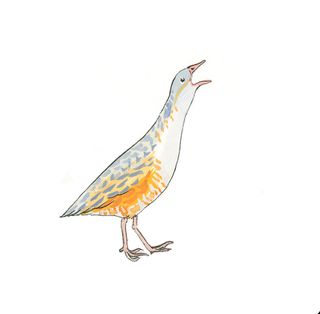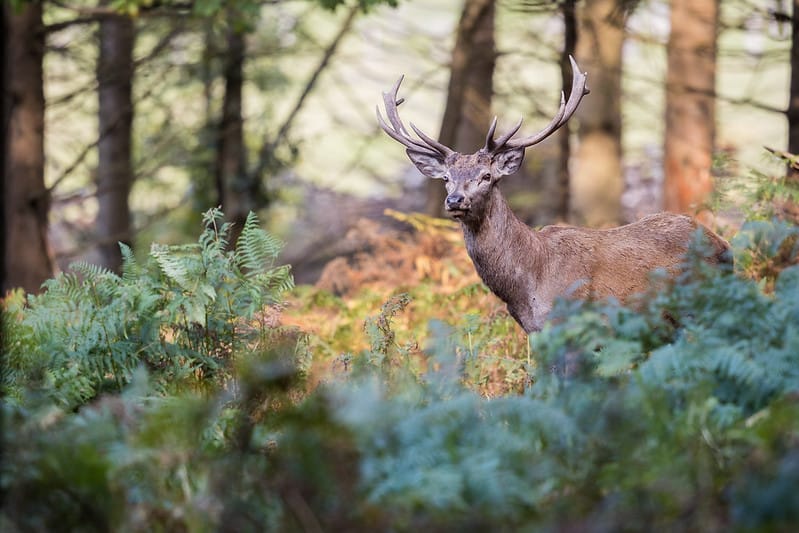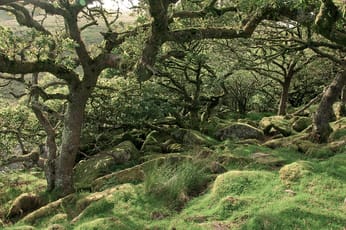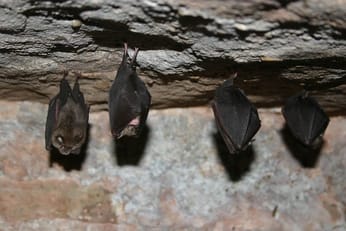
Rewilding Scotland & Heathland Trees
The latest news on nature and conservation in the UK.
National news
Rewilding | The Scottish Rewilding Alliance, a coalition of over 20 organisations, has launched a new campaign to make Scotland the world’s first “Rewilding Nation”. Details of what this means in practice are fairly thin on the ground at the moment, although there was a webinar, available online, that presumably delves into the nuts and bolts a bit more, alongside this amazing animated video that sets out the overall vision.
The news was covered by the Independent, which explains that the group “is calling on the Scottish government to rewild 30 percent of land and sea by 2030. That is a bolder ambition than the UK government, which has promised to protect rather than rewild the same proportion of UK land and sea by the same date.” To accompany the launch, the Alliance released the results of a poll, showing that 76 percent of Scots support rewilding. However, this week also delivered support from more unexpected quarters: the Daily Express. The famously right-wing tabloid tweeted a video showing “how the UK can rewild 50% of its farmland”. (Spoiler: go vegan.)
Beavers | It’s expected that 2021 will be bad for a lot of things, but the Wildlife Trusts has promised that it’s going to be great for beavers. The charity plans to release around 20 beavers this year – a record number – across five more countries in Britain, including a project in Wales. There’s a useful reminder that Defra is expected to release a public consultation on a beaver strategy for England shortly. The Guardian and the Telegraph covered the story. Separately, a survey of beaver territories by NatureScot has found that beavers are active right in the centre of Perth, making it the first city in the UK to have a resident beaver population. The Scotsman covered the story.
Rivers | Campaigners have said that legislation designed to reduce agricultural water pollution in England is “useless”, as data revealed by the Guardian showed that no prosecutions or fines had been issued despite regular documented breaches. The information, obtained through a Freedom of Information request, showed that there had been 243 violations of the rules since they came into effect in April 2013. Lee Schofield, manager of RSPB Haweswater, tweeted some helpful analysis of why these breaches tend to occur in the first place. Meanwhile, a new campaign group called River Action was launched this week, targeting some of the country’s biggest agricultural suppliers. It includes former Conservative environment minister Richard Benyon alongside environmental campaigners George Monbiot and Feargal Sharkey.
In other news:
- Former Chancellor Sajid Javid has said that countries’ wealth should no longer be measured by GDP alone but also by the value of their nature, in an interview with the Sunday Telegraph.
- McDonalds has launched a regenerative grazing project, reports FarmingUK.
- Scottish gamekeepers have issued a “call to arms” against policies they allege have damaged their livelihoods, reports the Times.
- The government has launched a four-week consultation on protecting water supplies in the face of climate change and other stressors.
- A campaign by Whale and Dolphin Conservation is urging the government to set targets to reduce cetacean deaths from fishing, reports the Shropshire Star.
- The government may review its road-building policy following pressure from environmentalists, reports the BBC.
- The next phase of HS2, between Birmingham and Crewe, has been approved, leading to disappointment among charities.
Across the country
Wareham | Conservation charities have criticised Forestry England for rushing ahead with replanting pine trees for timber in Wareham Forest, after a huge fire damaged 550 acres of land in May last year, reports the BBC. The groups say that this was a poor ecological decision because the blaze represented a rare chance to restore the area’s heathland habitat. “This was an excellent opportunity to expand and link the heathland in Wareham Forest with the Purbeck Heaths National Nature Reserve as part of an extensive nature recovery network,” said Dante Munns from the RSPB. “We’ve already lost so much precious heathland and opportunities like this don’t come along very often. It’s very, very disappointing.”
Shropshire | A project to reinvigorate an area of common land in the Shropshire Hills has been awarded almost £2m from the National Lottery Heritage Fund, reports the Shropshire Star. The initiative is part of a wider partnership called Our Common Cause, designed to conserve and enhance the tradition of commoning across the English uplands. Julia Aglionby, who leads the Foundation for Common Land, said that the project was “about bringing farming and nature together.”
Hebrides | Firefighters have responded to 24 significant wildfires in three days in the Hebrides, mainly on Skye and the outer islands, reports the Scotsman. A senior officer from the Scottish Fire and Rescue service said that, while the cause in each case was unclear, many were the result of controlled burns that had got out of hand. This was aided, he said, by the fact that last year’s muirburn season was cut short due to COVID, leading to a build up of flammable material – though it’s worth noting that the practice of burning moorlands in this way is controversial in itself. A gamekeeper on Skye appeared to confirm this hypothesis: “We have had some fantastic dry weather lately, which has left the land tinder dry,” he told the Scotsman. “Crofters on Skye have been making the most of this to carry out their annual muirburn, but some of the fires have spread.” In other fire news, ITV reports that a huge wildfire that swept across Dartmoor may have been due to a decline in grazing, leading to more flammable grass on the moors.
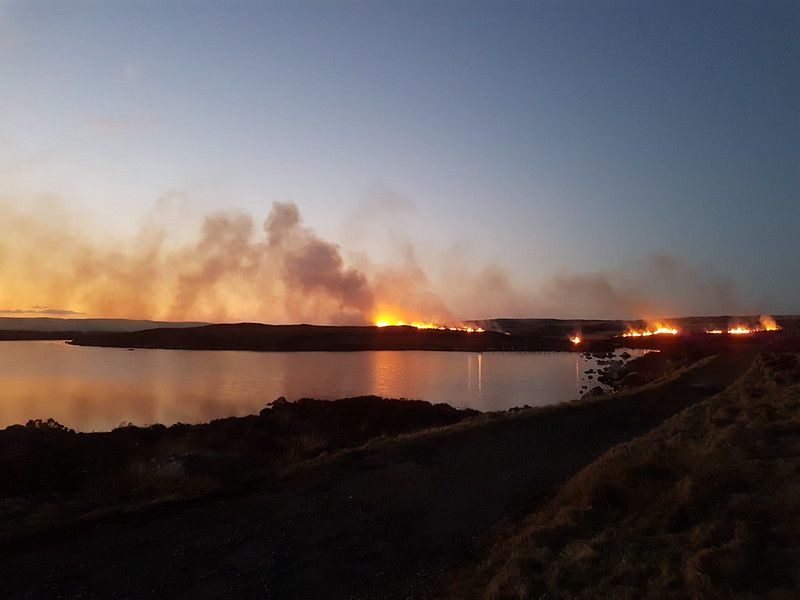
Elsewhere:
- Allotment tenants in Hull are “devastated” as the plots prepare to close, with speculation that it could be to make way for a housing development, reports the Hull Daily Mail.
- One of London’s few remaining colonies of tree sparrows has vanished, reports BirdGuides.
- Botanists are rushing to save the rare mountain sandwort, found near the summit of Ben Lawers in Perthshire, after a steep decline in numbers, reports the Times.
- Charges have been dropped against a Norfolk farmer accused of destroying otter and water vole shelters, reports the Eastern Daily Press.
- Conservationists have found a nest of one of the UK’s rarest bumblebees in Caithness, reports the Scotsman.
- Westminster Council has drawn up plans for a giant grassy hill on Oxford Street, reports the Evening Standard. The design has drawn some criticism.
- A new report has revealed bird declines in Cornwall, reports BirdGuides.
Reports
Justice | The IPPR think-tank has been holding a series of citizens’ juries around the UK as part of its Environmental Justice Commission, which is co-chaired by Caroline Lucas, Laura Sandys and Hilary Benn, to shape a “positive vision” for the environment and society in the UK. This week, they released their recommendations from the jury meetings held in the Tees Valley and Country Durham. It includes a section on nature, recommending the transfer of neglected land into community ownership, rewilding council-owned derelict land, and funding more protected land, with some left “undisturbed” and some accessible to the public.
Biodiversity | NatureScot has published a 98-page assessment of its progress towards meeting the Aichi Targets, which are a set of 20 global benchmarks that were meant to be achieved by 2020. The report sets out progress made by the end of 2019, at which point Scotland was on track to achieve just nine of these targets, and set to miss another 11 unless additional action was taken. We have to wait until later this year to have the final 2020 report. Another NatureScot report looks at the financial value that Scotland’s National Walking and Cycling Network provides to the local economy.
Forests | The Forestry Commission has released its latest statistics, summarising its headline performance based on six key indicators. These include the percentage of woodland in active management, the rate of new planting and the number of businesses operating in the nation’s forests. The fact that I found most interesting was that 59 percent of English woodlands are under active management, with 560 businesses operating in these forests.
Science
Herbivores | A study published in Global Ecology and Biogeography looks at the role of reintroducing native herbivores (rather than replacement species) in restoring downgraded ecosystems, given the extinctions that have taken place through historic human interference. The authors looked at the effects when trying to mimic different baselines. “We argue that restoration efforts need to recognize the long history of anthropogenic extinctions, the functional legacies of these extinctions, and the normative views that underlie restoration decisions. Otherwise, we risk inadvertently restoring past conditions already downgraded by the anthropogenic extinctions that preceded them,” the researchers conclude.
Kites | A fascinating paper in The London Journal looks at how people in the early modern period felt about London’s populations of ravens and red kites. It shows that, while residents of London remained pretty apathetic about these birds, foreign visitors were more impressed, painting a picture of England as an exotic country with strange landscapes and customs. I liked this paper because it casually contains the sentence: “When he died ravens flew into his room to escort his soul to hell.”
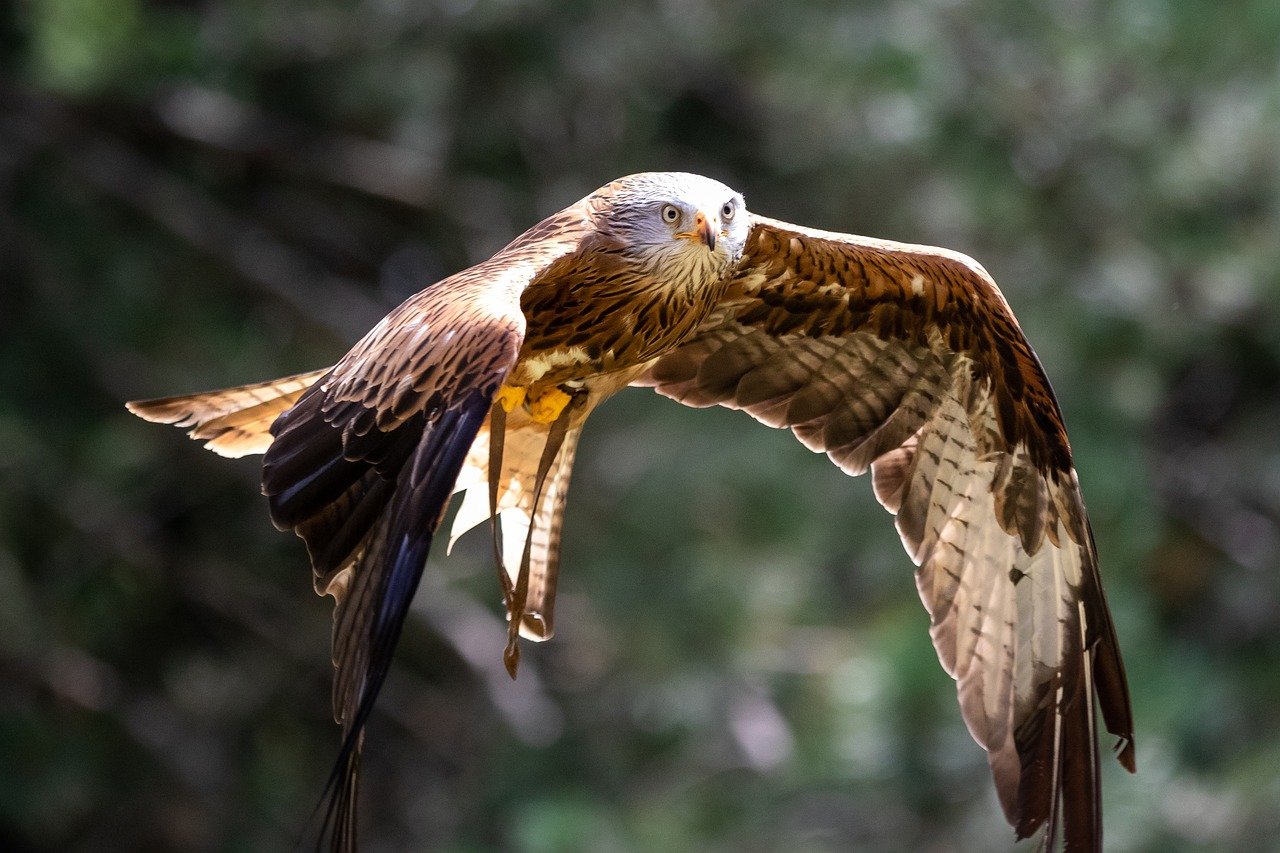
Butterflies | A study in Diversity and Distributions looks at the impact of climate change on the range of grizzled skippers in the UK over the last 40 years. As temperatures have risen, the threatened butterfly would have been expected to expand northwards, but that doesn’t appear to have been the case, indicating that another driver, such as habitat loss, may have limited its movement. “Our findings highlight potential hazards in predicting species range expansions from spatial models alone,” the authors conclude.
Driftwood
National parks | Following Daniel Raven-Ellison’s video of the UK’s National Parks (which featured in last week’s newsletter), the RSPB’s Lee Schofield has written a thought-provoking blog about how best to restore nature to these vast areas. “I’d like to see them become places which are both beautiful and wildlife rich. It can be done,” he says. But the fact that much of the land is privately owned means that change must happen “through encouragement, not by force,” he adds.
Wild Justice | The Guardian has an interesting feature on Wild Justice, the organisation led by Chris Packham, Ruth Tingay and Mark Avery, and which focuses on protecting the environment through the legal system. As well as interviews with two of its members about its work to date, various other conservationists give their perspective on the group’s tactics; Natural England’s Tony Juniper said: “One concern I have at the moment is how many conservation debates have become highly polarised, making it harder to achieve progress on the ground. Sometimes, legal actions can make that worse.” Gary Doolan from the British Association for Shooting and Conservation also gives his perspective.
Brexit | With the UK out of the EU, the RSPB looks at efforts in Scotland to ensure that protections for nature are strengthened rather than rolled back. It’s a useful state-of-play on the legislation. It pays particular attention to the Continuity Act, which became law in January and transfers some key EU environmental protections into Scots law, highlighting its strengths and weaknesses. It also notes that 2021 will be an important year because of the Scottish Parliament elections in May.
Further reading:
- The BBC has released aerial video footage of HS2 as it currently stands, including where it cuts through woodland.
- It’s been 25 years since the Sea Empress Disaster, which spilled more than 72,000 tonnes of oil onto the Welsh coastline. Natural Resources Wales looks back at the event.
- The Natural History Museum has a blog on its efforts to preserve the shells collected by Charles Darwin during his travels.
- The RSPB spells out its position on offshore wind, climate change and seabirds in a new blog.
Happy days
Memories | The Wildlife Trust of South & West Wales has been busy collecting people’s memories of wildlife along the Welsh coastline. They have gathered more than 200 stories, which they have pinned to an interactive map, in lieu of a travelling exhibition that was cancelled due to COVID. Some of the tales stretch back centuries. “People's memories and skills are constantly at risk of being lost,” says the Trust. “By writing things down, we're ensuring that our heritage isn't lost into the depths of the ocean.”
Image credits: Connor Mollison, Connor Lawless, Herbert Aust
Subscribe to our newsletter
Members receive our premium weekly digest of nature news from across Britain.
Comments
Sign in or become a Inkcap Journal member to join the conversation.
Just enter your email below to get a log in link.

